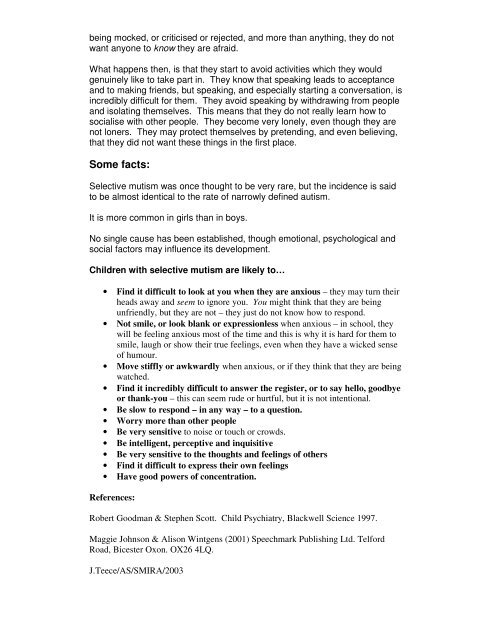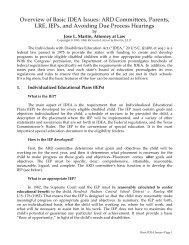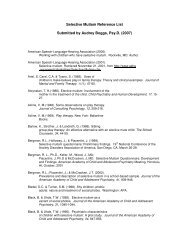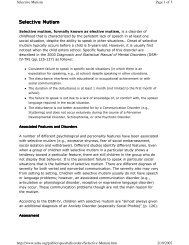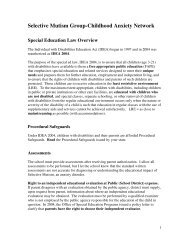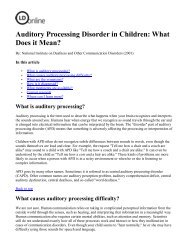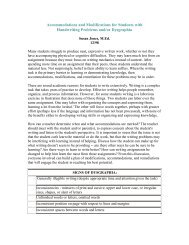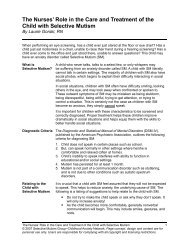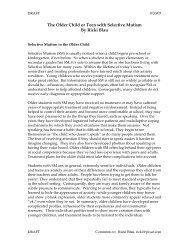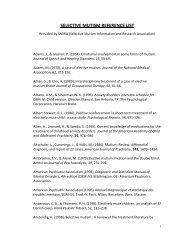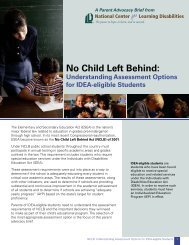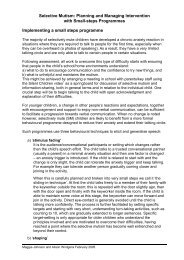What SM Means - Selective Mutism Group
What SM Means - Selective Mutism Group
What SM Means - Selective Mutism Group
You also want an ePaper? Increase the reach of your titles
YUMPU automatically turns print PDFs into web optimized ePapers that Google loves.
eing mocked, or criticised or rejected, and more than anything, they do not<br />
want anyone to know they are afraid.<br />
<strong>What</strong> happens then, is that they start to avoid activities which they would<br />
genuinely like to take part in. They know that speaking leads to acceptance<br />
and to making friends, but speaking, and especially starting a conversation, is<br />
incredibly difficult for them. They avoid speaking by withdrawing from people<br />
and isolating themselves. This means that they do not really learn how to<br />
socialise with other people. They become very lonely, even though they are<br />
not loners. They may protect themselves by pretending, and even believing,<br />
that they did not want these things in the first place.<br />
Some facts:<br />
<strong>Selective</strong> mutism was once thought to be very rare, but the incidence is said<br />
to be almost identical to the rate of narrowly defined autism.<br />
It is more common in girls than in boys.<br />
No single cause has been established, though emotional, psychological and<br />
social factors may influence its development.<br />
Children with selective mutism are likely to…<br />
• Find it difficult to look at you when they are anxious – they may turn their<br />
heads away and seem to ignore you. You might think that they are being<br />
unfriendly, but they are not – they just do not know how to respond.<br />
• Not smile, or look blank or expressionless when anxious – in school, they<br />
will be feeling anxious most of the time and this is why it is hard for them to<br />
smile, laugh or show their true feelings, even when they have a wicked sense<br />
of humour.<br />
• Move stiffly or awkwardly when anxious, or if they think that they are being<br />
watched.<br />
• Find it incredibly difficult to answer the register, or to say hello, goodbye<br />
or thank-you – this can seem rude or hurtful, but it is not intentional.<br />
• Be slow to respond – in any way – to a question.<br />
• Worry more than other people<br />
• Be very sensitive to noise or touch or crowds.<br />
• Be intelligent, perceptive and inquisitive<br />
• Be very sensitive to the thoughts and feelings of others<br />
• Find it difficult to express their own feelings<br />
• Have good powers of concentration.<br />
References:<br />
Robert Goodman & Stephen Scott. Child Psychiatry, Blackwell Science 1997.<br />
Maggie Johnson & Alison Wintgens (2001) Speechmark Publishing Ltd. Telford<br />
Road, Bicester Oxon. OX26 4LQ.<br />
J.Teece/AS/<strong>SM</strong>IRA/2003


